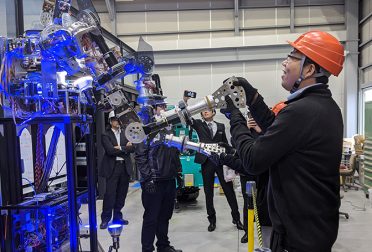MIT SDM Systems Thinking Webinar Series
Ioannis Kyratzoglou, SDM ’11
Principal Software Systems Engineer, MITRE Corporation
Date: January 27, 2014
About the Presentation
Today’s global corporations face risks that range from the controllable (price fluctuations, currency volatility, market changes) to those that are beyond control (natural disasters). To counter supply-chain disruptions, best-in-class organizations apply mature operations and risk management practices to reduce their exposure to these risks and maintain a competitive advantage.
This webinar will discuss the supply chain operations and risk management approaches of large companies. Specifically, the presenter will:
- Describe company operations and financial performance in the face of supply chain disruptions;
- Propose a systems-based framework and set of principles to help companies analyze and assess controllable and uncontrollable risks; and
- Explain four key principles that companies can use to better manage supply chain risks and prepare for future opportunities.
The presenter will also discuss how leaders can use this systems-based framework to better understand a company’s position in the market relative to its competitors.
About the Speaker
Ioannis Kyratzoglou is a principal software systems engineer with the MITRE Corporation. He has 30 years of experience in systems engineering and in the acquisition of large-scale software systems. He has served as chief engineer, senior technical advisor, and project leader on key projects involving close collaboration with the customer. He is currently responsible for the development of predictive systems performance analytics techniques for a large-scale project. As an SDM alumnus, he holds an S.M. from MIT in engineering and management. He also earned an S.M. in mechanical engineering from MIT and a B.S. in mechanical engineering from the City College of New York.
About the Series
The MIT System Design and Management Program Systems Thinking Webinar Series features research conducted by SDM faculty, alumni, students, and industry partners. The series is designed to disseminate information on how to employ systems thinking to address engineering, management, and socio-political components of complex challenges.




